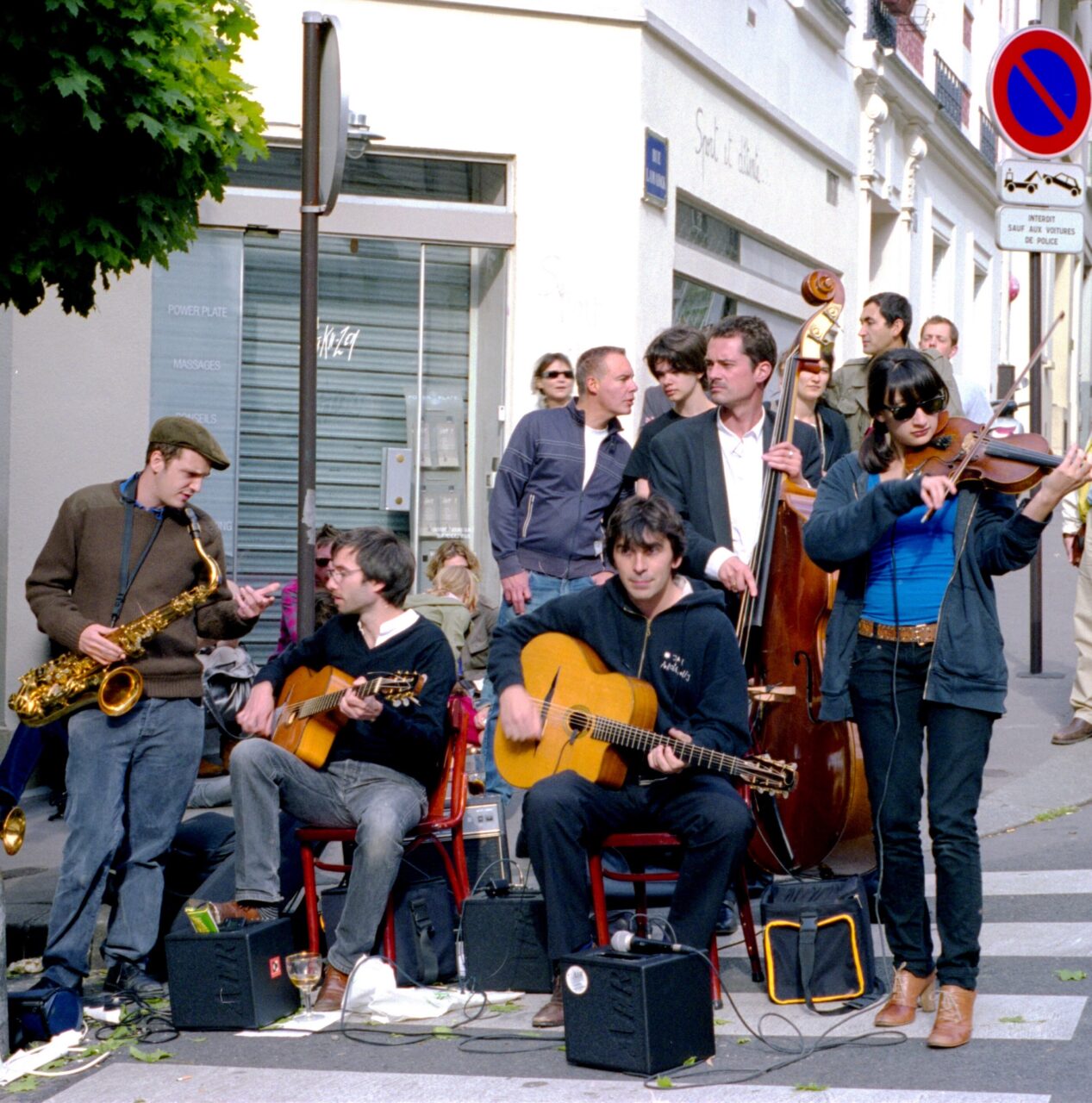Lots of our students are visiting France this summer so we’ve put together a manuel de survie en voyage! This travel survival guide includes vocabulary and tips for both novice and advanced students, as well as cultural dos and don’ts. While we love la Métropole (Mainland France), we think it’s important that our students discover the cultures of other Francophone countries. That’s why we’ve included photos and special dishes from these places on our list!
By Sophia Millman
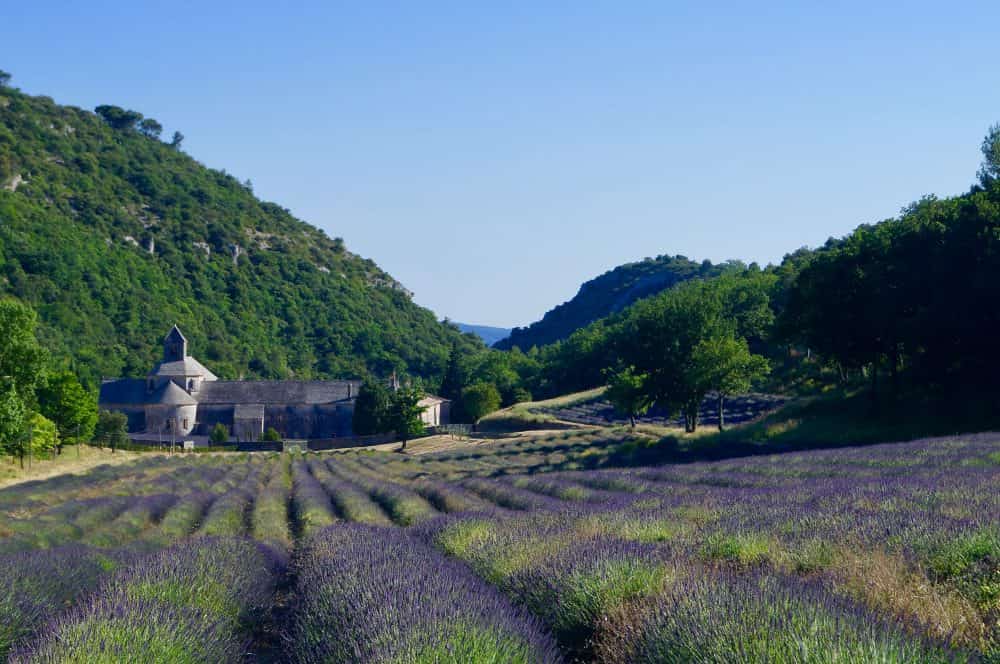
Lavender fields in Provence
Les bases (The Basics)
If you’ve never studied French before and need a full breakdown of basic words (oui, non, merci etc.), check out this this handy table on Tripadvisor. You can also watch this great video to master the pronunciation of certain phrases. Here are the words and phrases you’ll definitely need to get by:
- Bonjour / Bonsoir – While saying “bonjour” (hello) can work at any time, the French tend to greet people with “bonsoir” (good evening) starting around 5/6pm.
- Excusez-moi / pardon – You can use either of these expressions to say “excuse me.” They come in handy especially in a crowded metro car.
- S’il vous plaît – Use this phrase to say “please” formally, or “s’il te plaît” if you’re on informal terms with someone. “Parlez plus lentement, s’il vous plaît” (“Speak slower, please”) is an excellent sentence to memorize.
- Est-ce que vous pouvez m’aider? Je cherche… – “Can you help me? I’m looking for…” If you have trouble with “Est-ce que vous pouvez,” you can simply say “Bonjour, je cherche…”
- Désolé(e) – “Sorry.” Try saying “Désolé, je ne parle pas français” (“Sorry, I don’t speak French”) if you don’t feel comfortable responding to a French speaker.
- Au revoir – This is the way to say goodbye permanently. “À tout à l’heure” and “à plus tard” are two ways to say “see you later.” If you want to sound more informal, you can say “à plus.”
Tip: Even if you don’t feel totally comfortable speaking in French, you’ll find that francophones respond more enthusiastically if you greet them with “Bonjour!” instead of “Hello.”

Gruyères, Switzerland
Les mots de vocabulaire essentiels (Essential Vocab Words)
Luckily, there’s a lot of overlap between French and English travel vocabulary. You can easily guess the definitions of these French words: l’aéroport, les bagages, le passeport, la réservation, and le train! Here are some other words you’ll want to commit to memory:
If you feel comfortable with basic French phrases and can conjugate most French verbs, try memorizing a few sentences to kick your fluency up a notch!
Aller-retour → round-trip
Aller-simple → one-way
Le billet → ticket
La gare → train station
Le siège → seat
La valise → suitcase
Le vol → flight
Tip: ThoughtCo has great vocabulary lists (with audio!) for specific situations. For instance, you can use their articles to polish your beach, hotel or restaurant vocabulary.
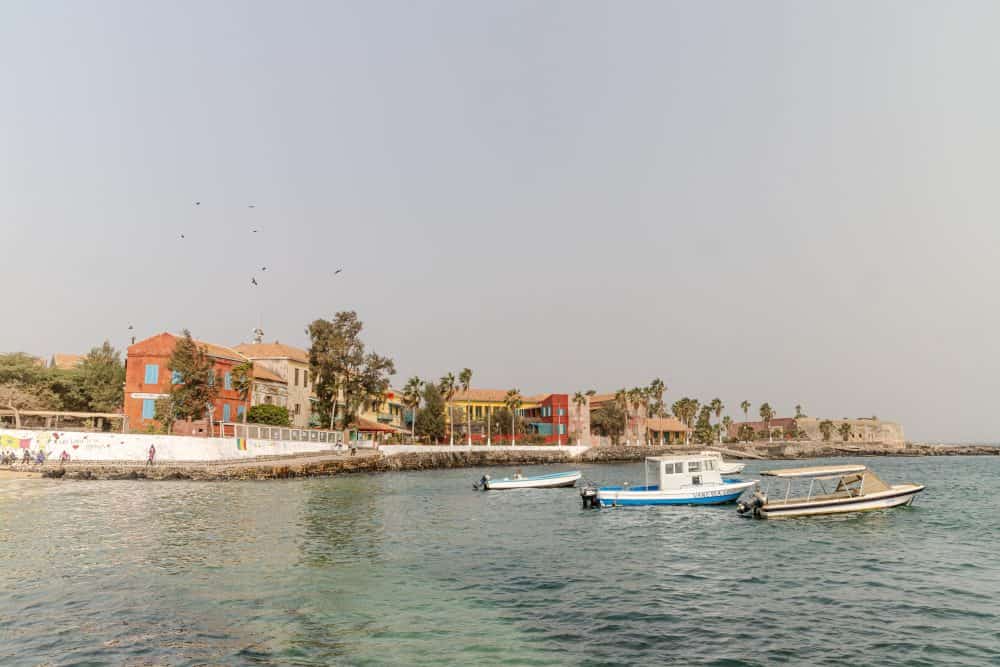
Dakar, Sénégal
Les verbes essentiels (Essential Verbs)
If you feel comfortable with basic French phrases and can conjugate most French verbs, try memorizing a few sentences to kick your fluency up a notch!
- Annuler (to cancel) – Mon vol est annulé, quelle journée horrible! My flight was canceled, what a horrible day!
- Aller/venir chercher quelqu’un (to pick up someone) – À quelle heure est-ce je dois venir te chercher à la gare? What time should I pick you up at the station?
- Partir (to leave) – On part pour la Guadeloupe dans trois jours! We leave for Guadeloupe in 3 days!
- Réserver (to reserve) – Je voudrais réserver deux places, s’il vous plaît. I’d like to reserve two spots, please.
- Coûter – Combien ça coûte? How much does this/that cost?
- Voyager (to travel) – Est-ce que tu as déjà voyagé en Algérie? Have you traveled in Algeria before?
Tip: You can practice listening and repeating French travel dialogues on many sites. Here’s one that’s short and very helpful!
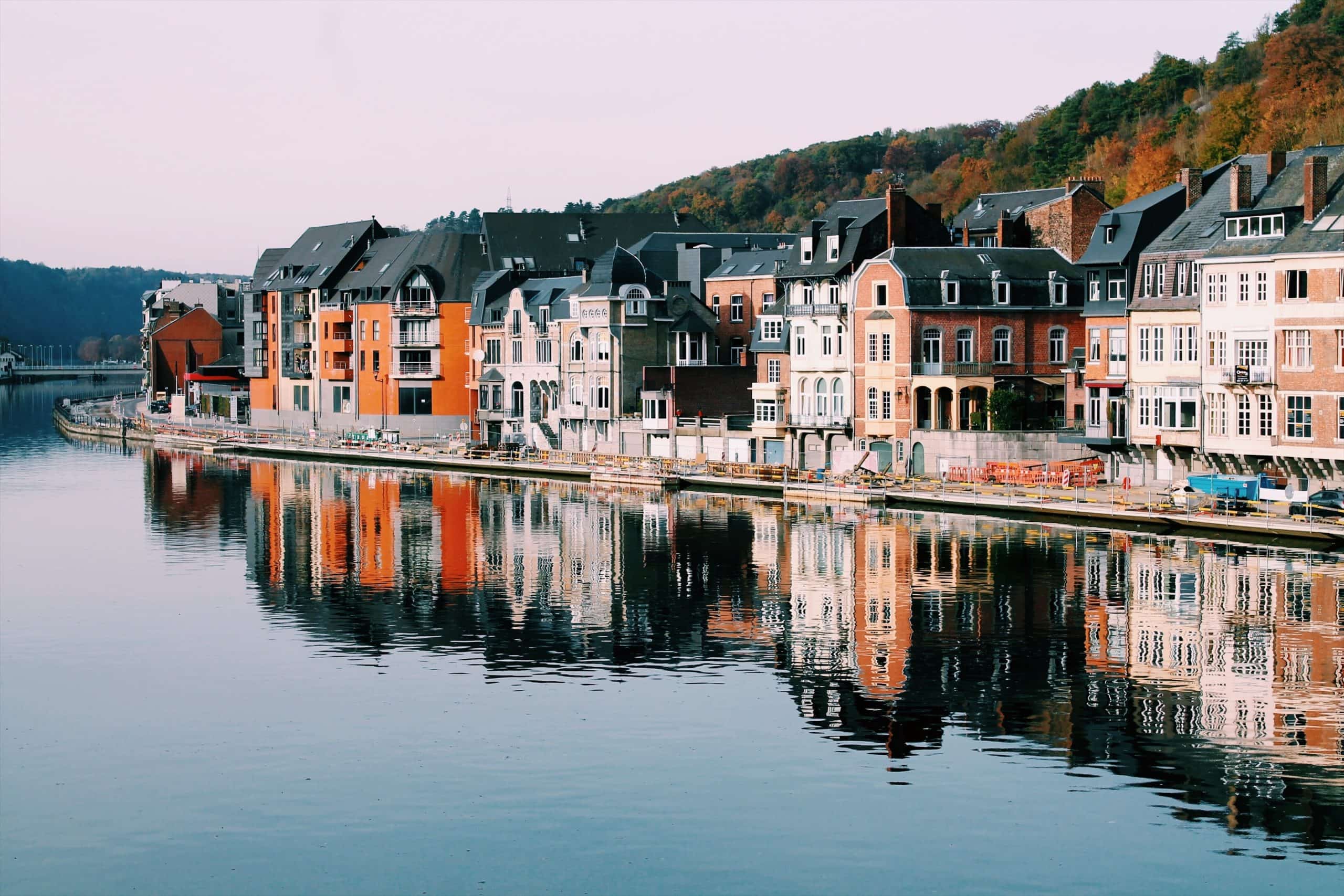
Dinant, Belgium
À éviter – What to Avoid
- Not greeting someone: Social etiquette in shops and on the street is different in francophone countries. Remember to say “bonjour (Madame/Monsieur)” and wait for the other person to respond to you before you ask them for something. You will seem much more polite and people will be more willing to help you.
- Shopping at the wrong time – If you want to buy groceries over the weekend, do your shopping on Saturday! You’ll find that many French businesses close early or aren’t open at all on Sundays. In Paris, you should get your shopping done before 7pm on the weekend, and 6pm in other cities since businesses tend to close early.
- Doing la bise with strangers – You may notice that French people often greet each other with cheek kisses (la bise). You’re not obligated to do this, and you should definitely shake hands with someone rather than kissing them if they do not initiate la bise first.
- Not tipping – It’s true that jobs in the French service industry tend to be better paid than those in the US. Tips are already included in your bill at restaurants, but that doesn’t mean you shouldn’t leave one if you enjoyed the service. Rather than leaving a percent of your bill, leave the change (a couple of euros). Your waiter or taxi driver will really appreciate the gesture!
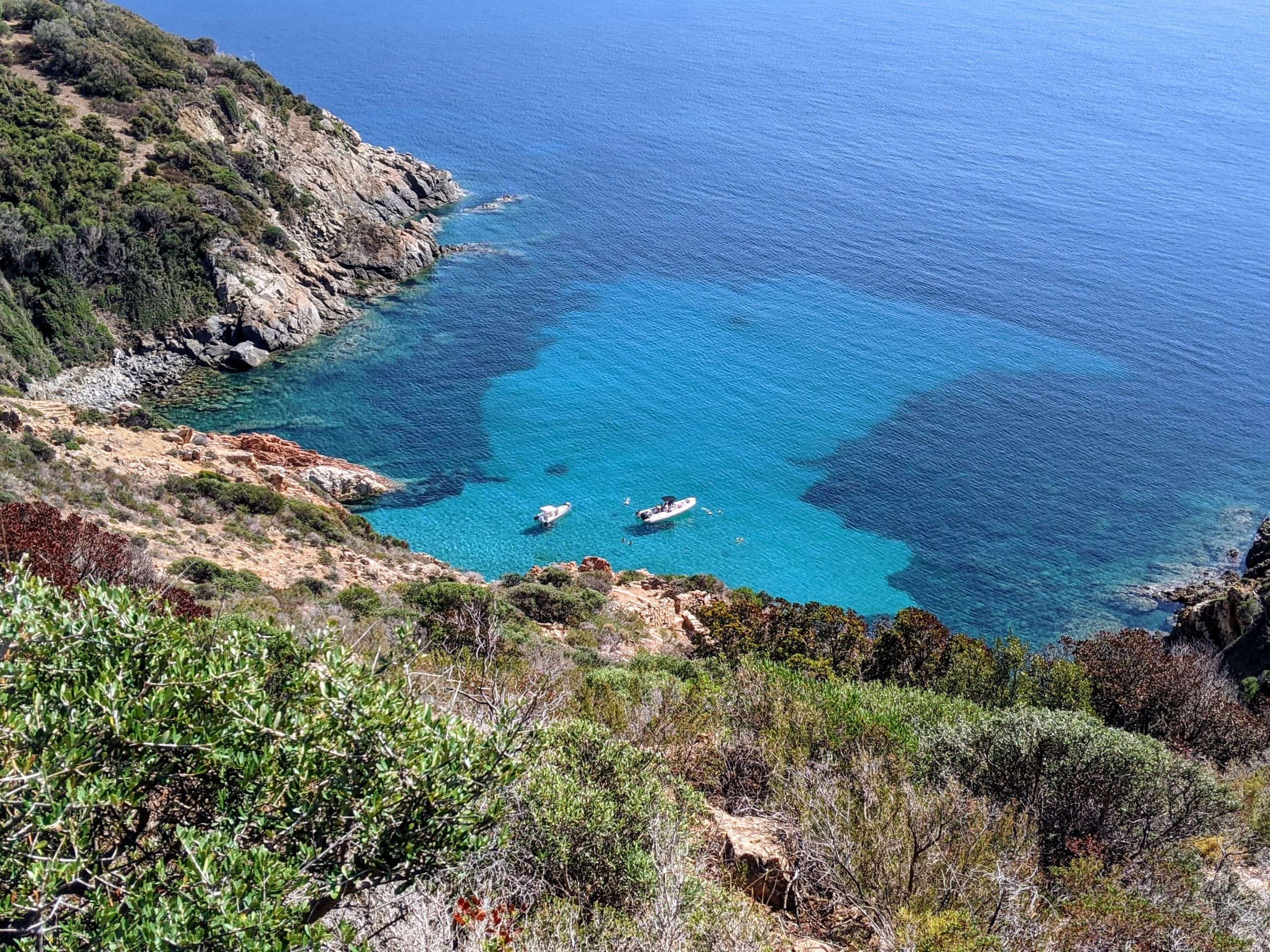
Corsica, France
Les cuisines à essayer (Cuisines to sample)
Of course, most people travel to see special sites, but sampling local cuisine is equally important. Here’s what to try if you want to go beyond the classics of French gastronomy!
- Belgium – Le sandwich pistolet. These sandwiches are made on very small buns and often contain butter, cheese, chicken, ham or even shrimp!
- Ivory Coast – L’alloco. This delicious West African snack is made with fried plantain, chili peppers, and onions.
- Madagascar – Le ravitoto. There are many varieties of this traditional dish, but it’s usually made with mashed cassava leaves (which you can’t find in the US!) that are combined with coconut milk and cooked with garlic and pork.
- Morocco – Le tajine. An unmissable dish that many of our students are huge fans of!
- Québec – La poutine. French fries, cheese curd, and brown sauce, what’s not to love? Ok, you might feel a little skeptical, but Canadians swear by this dish!
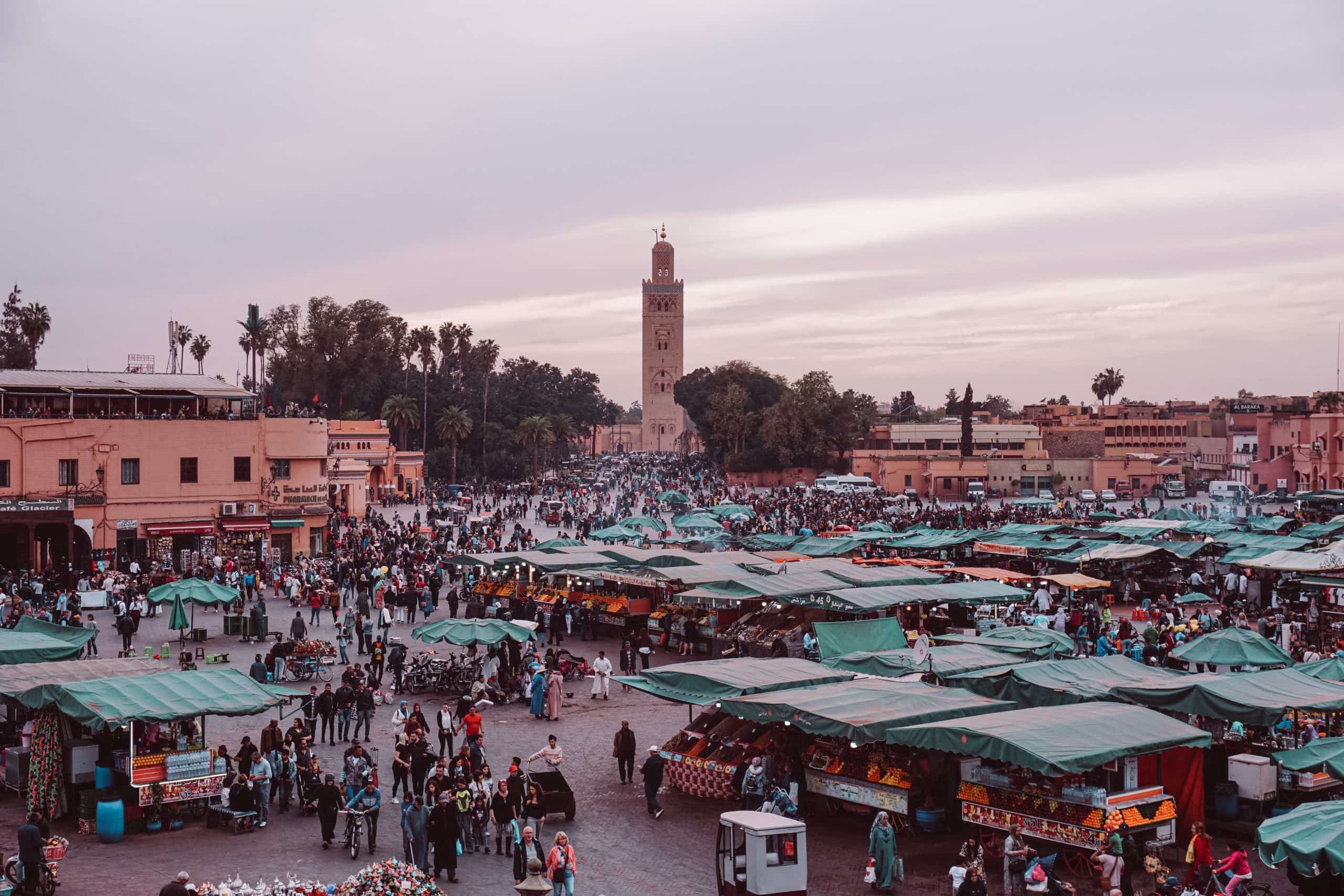
Marrakesh, Morocco
Final Thoughts
We encourage you to listen for different French accents and regional languages while you’re traveling abroad. Here are some you might come across:
- Le basque – Spoken in southwestern France and Northern Spain, Basque is unrelated to all other languages of Europe! It’s called a language isolate since it bears no similarity to any other known living language.
- Le breton – This Celtic language is still spoken in parts of Bretagne, and even taught in some French schools.
- Le ch’timi – One of France’s most notorious Northern dialects, the Ch’timi doesn’t sound very beautiful to most French people’s ears. You can hear the accent in one of France’s most popular films, Bienvenue chez les Ch’tis
- Le créole – There are many versions of Creole that you’ll hear either in the French Caribbean or in Louisiana! Learn the top Haitian Creole words here.
- Le français québécois – Canadian French speakers have very different accents and a slightly different vocabulary from that of continental French speakers. Here’s a video that breaks down the differences.
Tip: There’s a useful Wikipedia article that explains all the different varieties of French you might come across in your travels. You can learn a little about any version of French (African, Asian, Belgian, Swiss etc!) and, no matter where you’re traveling, impress locals with your knowledge of a few regional words!

Saint-Martin, Caribbean sea


